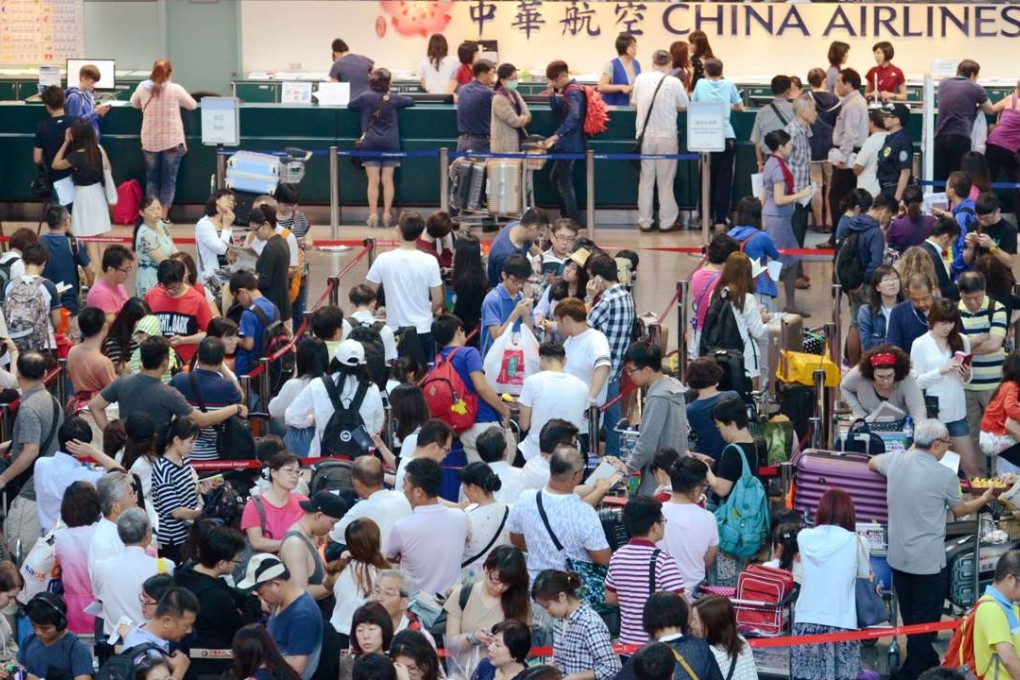Passengers stranded as Taiwan’s China Airline struggles to resume flights after strike
Management and travel industry experts say unprecedented industrial action and meeting flight attendants demands will cost the island’s main carrier millions of dollars

Taiwan’s China Airlines (CAL) cancelled 62 flights on Saturday, including 14 between Hong Kong and Taipei, in the aftermath of the airlines union’s first-ever strike that has stranded more than 35,000 passengers since Friday.
Aside from losses of millions of dollars, the real impact of the unprecedented strike on Taiwan’s aviation industry has yet to be felt, officials and experts said.
Although the strike staged by CAL flight attendants’ union officially ended late on Friday, the airlines still had to cancel 62 flights on Saturday, stranding more than 15,000 passengers.
“As not all the flight attendants have returned to work, we do not have adequate manpower to staff all of our 81 flights originally scheduled for today,” a CAL spokesman said.
On Friday night, the union agreed to call off the strike after the company accepted all of its seven demands to increase allowances and improve working conditions plus other benefits.